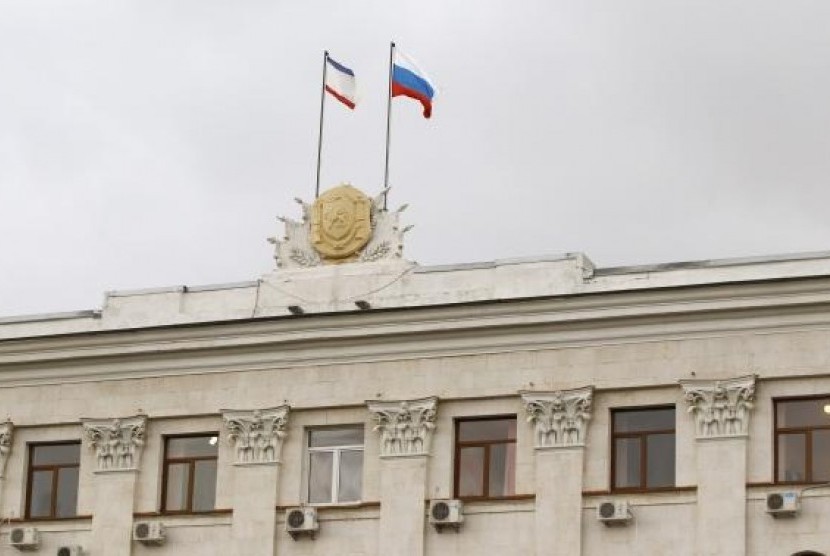REPUBLIKA.CO.ID, BRUSSELS/MOSCOW - European Union leaders were set to warn but not sanction Russia on Thursday over its military intervention in Ukraine after Moscow rebuffed Western diplomatic efforts to persuade it to pull forces in Crimea back to their bases.
Russian Foreign Minister Sergei Lavrov refused to meet his new Ukrainian counterpart or to launch a "contact group" to seek a solution to the crisis at talks in Paris on Wednesday despite intensive cajoling by US Secretary of State John Kerry. The two men will meet again in Rome on Thursday.
Tension remained high in Ukraine's southern Crimea region, where a senior United Nations envoy was surrounded by a pro-Russian crowd, threatened and forced to get back on his plane and leave the country.
An emergency EU summit in Brussels is unlikely to adopt more than symbolic measures against Russia, Europe's biggest gas supplier, because neither industrial powerhouse Germany or financial center Britain are keen to start down that road.
The United States has said it is ready to impose sanctions such as visa bans, asset freezes on individual Russian officials and restrictions on business ties within days rather than weeks. Russia's ruble currency weakened further on Thursday despite central bank intervention due to what analysts at VTB Capital called a political risk premium. The European Commission announced an aid package of up to 11 billion euros for Ukraine in the next couple of years provided it reaches an agreement with the International Monetary Fund, entailing painful reforms like ending gas subsidies.
Diplomats said that at most, the 28-nation EU would condemn Russia's so far bloodless seizure of Ukraine's Black Sea province and suspend talks with Moscow on visa liberalization and economic cooperation, while threatening further measures.
But they will hold back from further reaching steps both in hopes of a diplomatic breakthrough to ease tensions in Ukraine and out of fear of a tit-for-tat trade war with Russia, a major economic partner of Europe.
France has a deal to sell warships to Russia that it is so far not prepared to cancel, London's banks have profited from facilitating Russian investment, and German companies have 22 billion USD invested in Russia.
The crisis began in November when Ukrainian President Viktor Yanukovich, under strong Russian pressure, turned his back on a far reaching trade deal with the EU and accepted a 15 billion USD bailout from Moscow. That prompted three months of street protests leading to the overthrow of Yanukovich on February 22.
Moscow denounced the events as an illegitimate coup and refused to recognize the new Ukrainian authorities. But Russia kept the door ajar for more diplomacy on its own terms, announcing on Thursday a meeting of former Soviet states in the Commonwealth of Independent States (CIS), including Ukraine, for April 4 and saying it would be preceded by contacts between Russian and Ukrainian diplomats.


